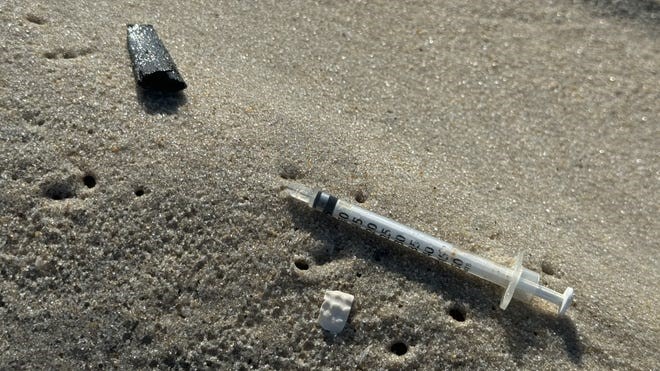The Importance of Compliance and Detailed Tracking in Medical Waste Management
Plastic pill bottles, syringes, needles, and other medical waste have mysteriously washed up along popular beaches on the Mid-Atlantic coast, leading officials in Delaware, Maryland, and Virginia to issue advisories asking people to stay out of the water. This unsettling development serves as a stark reminder of the critical importance of rigorous compliance and detailed tracking in medical waste management.
At Advant-Edge Solutions of Middle Atlantic, Inc. (ASMAI), we recognize that proper handling of medical waste is more than just meeting regulations—it’s about protecting our communities, environment, and public health.

1. Regulatory Compliance: The First Line of Defense
Medical waste management is governed by strict regulations at federal, state, and local levels. These regulations cover everything from collection to transportation, treatment, and disposal. Non-compliance can have severe consequences, not only resulting in penalties but also endangering public safety, as seen in the recent Mid-Atlantic public health hazard.
ASMAI ensures compliance by consistently monitoring regulatory changes and adapting our practices to meet current legal requirements. This diligent approach helps prevent mishandling that could lead to environmental contamination and public health hazards.
2. Detailed Tracking: Ensuring Accountability and Safety
One of the most effective measures to prevent medical waste from appearing in unintended locations is implementing detailed tracking systems. ASMAI’s tracking process ensures accountability at every stage, from initial pick up to final disposal, allowing for real-time monitoring and verification.
By logging each step in the waste management process, we provide healthcare providers and other generators with transparency and assurance that their waste is being handled safely and responsibly. This meticulous approach to tracking helps minimize the risk of improper disposal, reducing the likelihood of incidents like the one that recently affected the Mid-Atlantic coast.
3. Proactive Risk Management: Preventing Public Health Hazards
In addition to compliance and tracking, ASMAI prioritizes proactive risk management. Our regular audits and assessments of transportation routes, storage sites, and treatment facilities help identify potential vulnerabilities before they become serious problems. This proactive approach helps prevent leaks, spills, and accidental releases that could contribute improper management of regulated medical waste.
4. Preventing Future Incidents with Comprehensive Waste Management
The recent medical waste contamination along the Mid-Atlantic beaches is a clear reminder of the critical need for responsible waste management practices. As the healthcare industry continues to grow, so does the volume of medical waste. This increases the urgency for compliant, transparent, and sustainable waste management solutions.
At ASMAI, we are committed to maintaining the highest standards of compliance and accountability, ensuring that all medical waste is tracked, treated, and disposed of safely. By partnering with ASMAI, healthcare providers can be confident that their waste is managed in a way that protects both the public and the environment.
The medical waste that recently washed ashore in Delaware, Maryland, and Virginia underscores the urgent need for meticulous compliance and detailed tracking in waste management. ASMAI is dedicated to preventing such incidents through proactive risk management, transparent tracking, and sustainable practices. Together, we can ensure safer shores and healthier communities.
